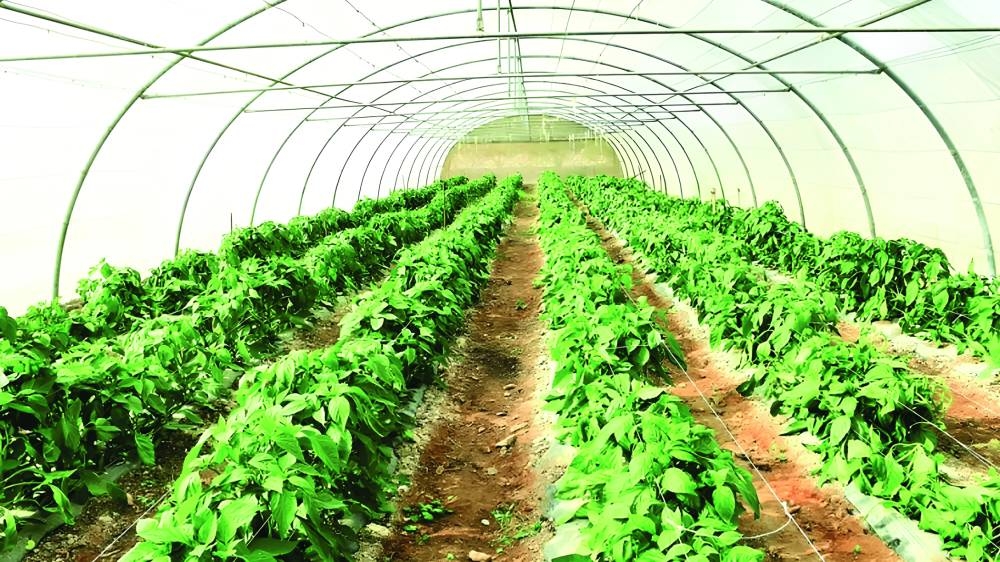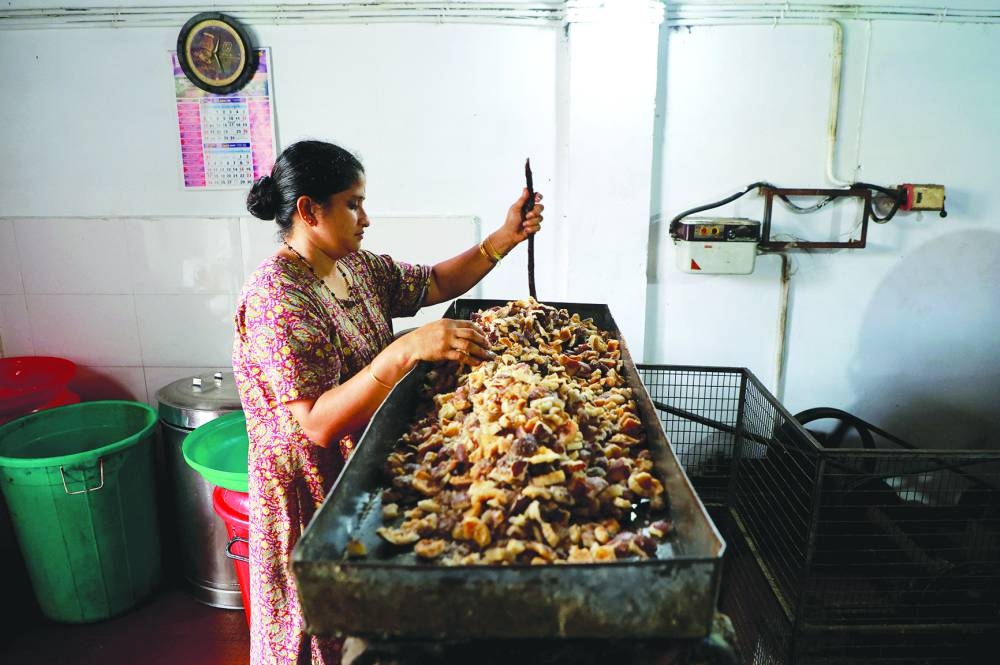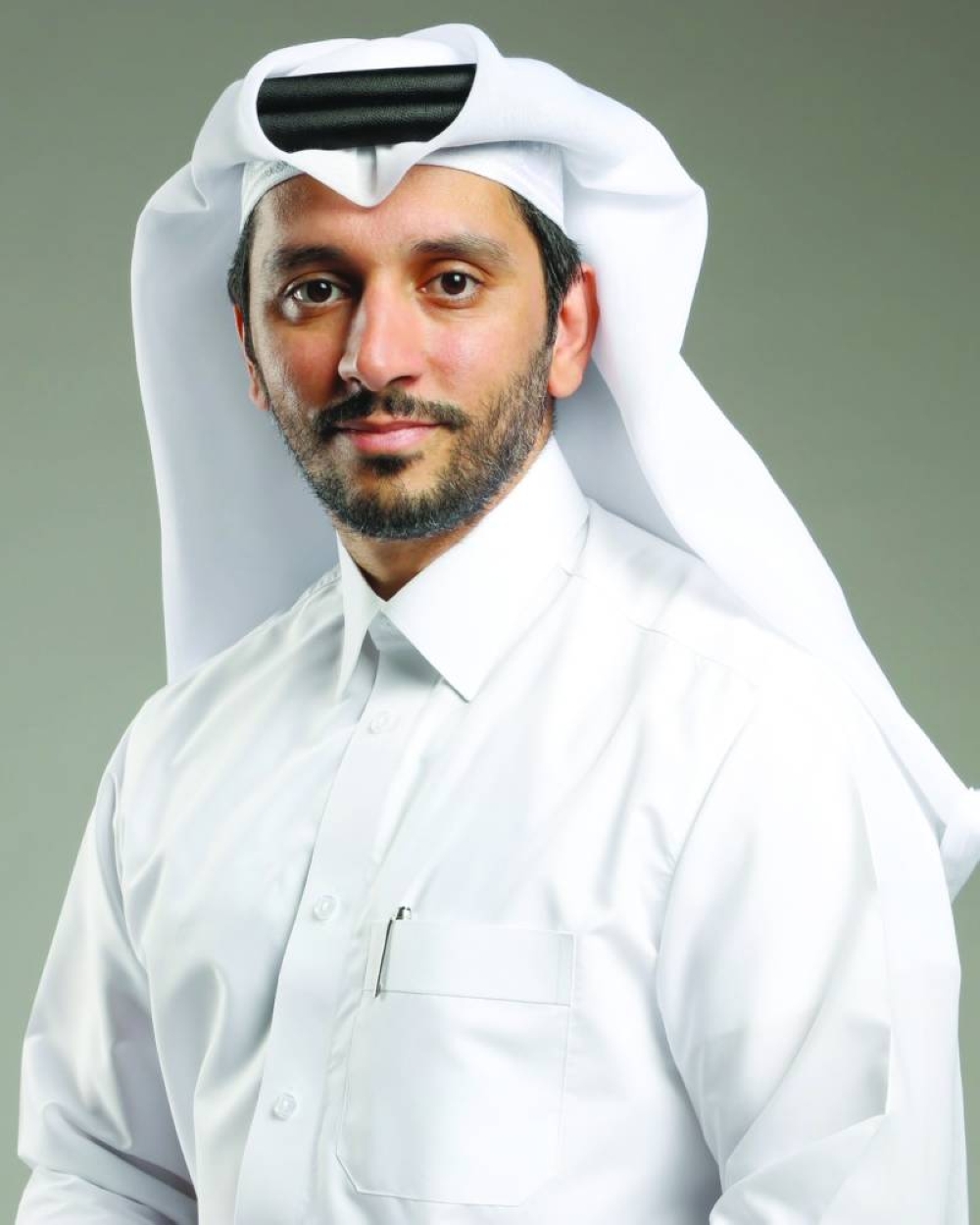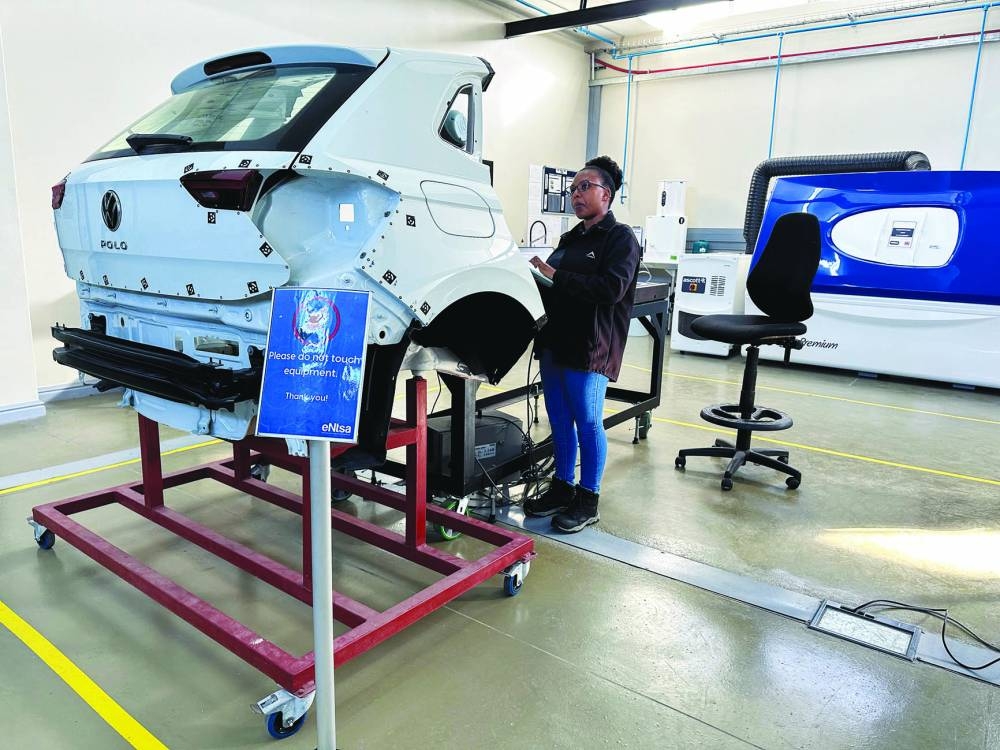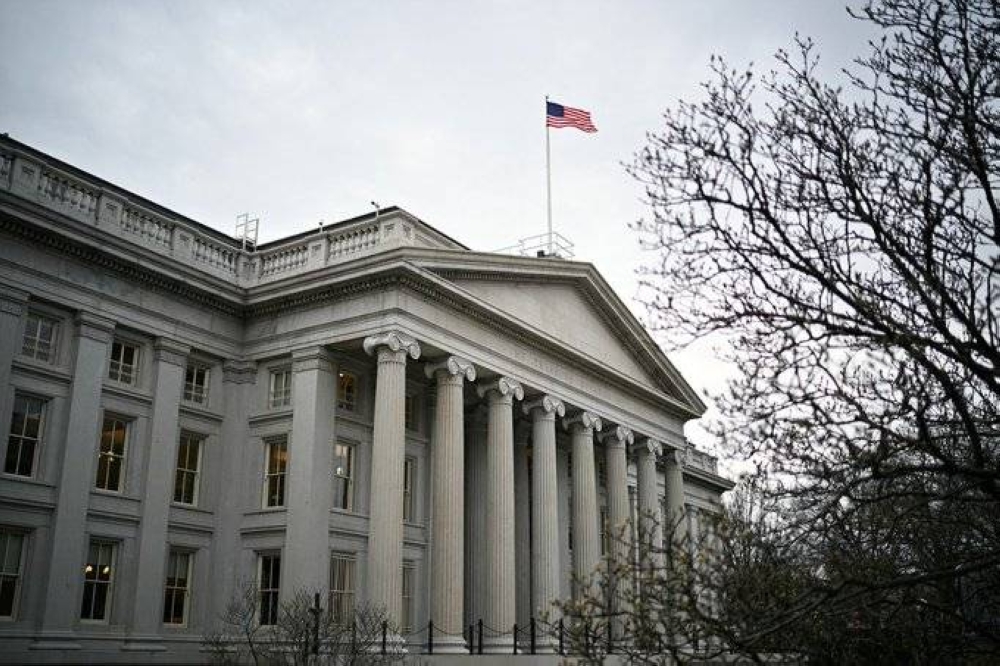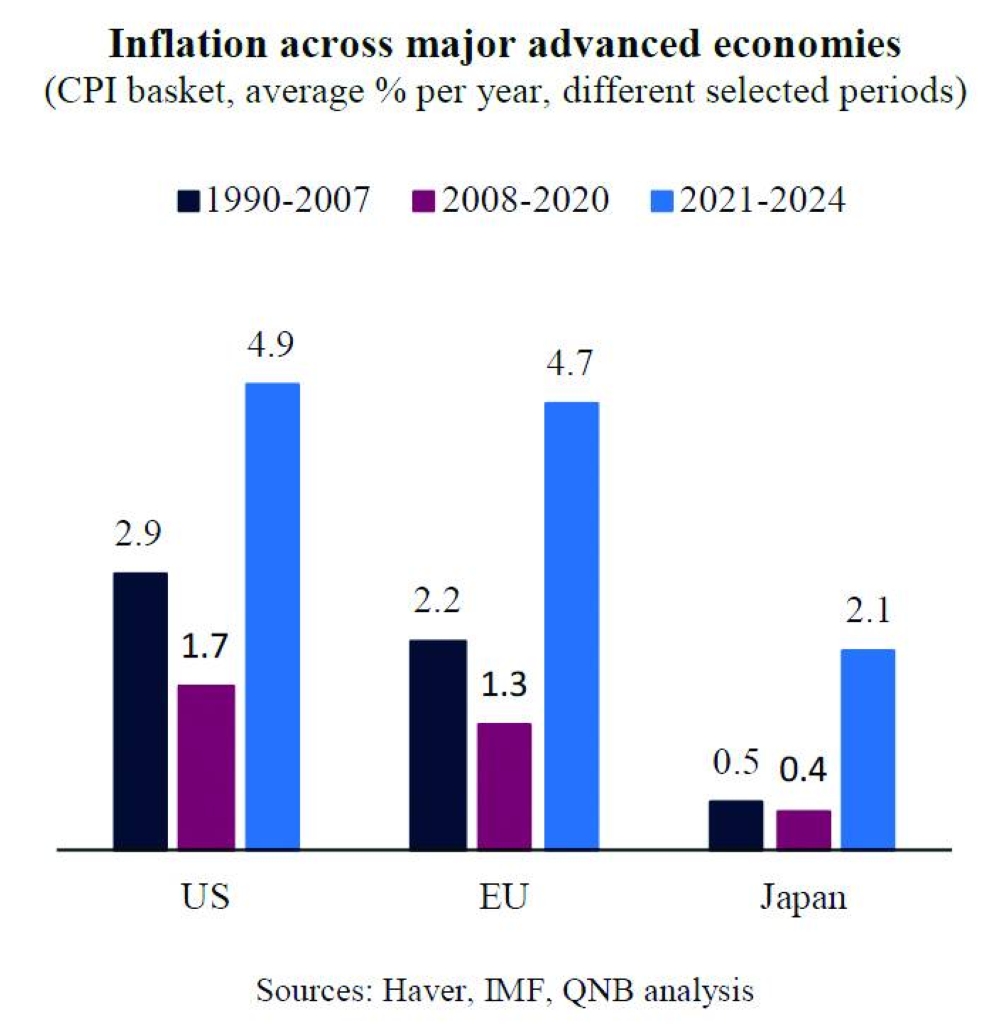Qatar has made significant achievements in food security and self-sufficiency over the past years in many basic food products, most notably self-sufficiency in the production of fresh dairy products and poultry.The country’s efforts to meet its needs for these basic products aim to reduce the dependence on imports from foreign markets and to mitigate its exposure to the risks of disruptions to global supply chains and price fluctuations in global commodity markets.The private sector plays a key role in supporting Qatar’s food security, according to private sector representatives, speaking exclusively to Qatar News Agency (QNA). They emphasised the importance of co-operation and integration between the public and private sectors in achieving the country’s strategic and development goals.In remarks to QNA, Assistant Director of the Food Security Department at the Ministry of Municipality Hamad Hadi al-Hajri said Qatar’s National Food Security Strategy 2030 is primarily based on achieving sustainability in the use of natural resources, through their optimal utilisation and preservation, especially land and water.He pointed out that the strategy aims to boost local production of highly perishable agricultural goods, such as staple vegetables, fresh milk and its derivatives, fresh poultry meat, table eggs, fresh fish, and fresh red meat.As for commodities that can be stored for long periods, including wheat, sugar, rice, edible oils, and frozen poultry, the strategy recommends focusing on building a strategic stockpile to reduce pressure on natural resources and preserve them.These efforts have contributed to a significant increase in local production, thereby strengthening food security and reducing reliance on imports.The Assistant Director of the Food Security Department confirmed that the focus on sustainability and local production has positively impacted self-sufficiency rates for basic food commodities, especially perishable commodities.The fresh dairy and derivatives sector, along with the fresh poultry sector, has achieved a self-sufficiency rate of approximately 98%, covering all local needs for over four years. This outstanding performance is expected to continue, confirming the stability of local production and its efficiency in meeting national demand sustainably.In regards to the strategic vegetable sector; it has achieved remarkable progress, reaching a self-sufficiency rate of 39% in 2024, especially in light of the climatic and environmental challenges. It is worth noting that local production covers most of the demand during the peak production period in winter, particularly for basic vegetables, thus enhancing food security during this time of year and reducing dependence on imports.Concerning table eggs, the self-sufficiency rate has reached 30%, with projects under construction that are expected to contribute in increasing this rate in the coming period. The fresh fish sector has achieved a self-sufficiency rate exceeding 65%, amid efforts to preserve marine stocks by stabilising fishing effort and focusing on expanding aquaculture projects to ensure sustainable production. This is in addition to achieving 14% self-sufficiency in fresh red meat production.Al-Hajri explained that the priorities for the next phase of the National Food Security Strategy 2030 are to foster sustainable agricultural production, enhance adaptation to climate change by adopting more flexible and efficient agricultural practices, and increase self-sufficiency rates in basic commodities.Self-sufficiency plansBy 2030, the strategy plans to achieve 55% self-sufficiency in fresh strategic vegetables, 70% in table eggs, 30% in sheep and goat meat, and 80% in fresh fish, while maintaining previously achieved self-sufficiency levels in fresh dairy products and fresh poultry.In terms of water sustainability, the goal is to reduce groundwater extraction for agricultural purposes by 70% and to reduce the amount of water used per ton of crops produced by 40% by 2030.In terms of improving efficiency and reducing food loss, the strategy aims to reduce food waste by 30%, reduce food waste by 50%, address between 55% and 70% of food loss and waste using sustainable solutions, and reducing the number of foodborne illnesses to 24 cases per 100,000 people.He noted that these goals constitute a clear framework for an advanced stage of work toward achieving sustainable and comprehensive food security in Qatar, capable of adapting to future environmental and economic challenges.Pivotal role of private sectorAl-Hajri explained that the Qatari private sector is a key pillar in supporting the state’s efforts to achieve the goals of the National Food Security Strategy. It plays a pivotal role in promoting economic development by providing the necessary investments to develop the food security system and increase production in various sectors such as agriculture, the food industry, and food security-related technologies.He pointed out that the private sector is characterised by its flexibility and capacity for innovation, enabling it to adopt modern solutions and advanced technologies that help promote sustainability and address challenges associated with food security.Furthermore, enhancing co-operation between the public and private sectors is also a key pillar emphasised by the National Food Security Strategy 2030. This co-operation aims to ensure the successful implementation of planned initiatives and activities, particularly in the areas of increasing the efficiency of agricultural production, enhancing the strategic stock of food commodities, and improving supply chains.He indicated the role of the private sector is highlighted through close integration and co-operation with the public sector to achieve the goals of the three pillars of the Food Security Strategy regarding local production and market demand, strategic reserves and warning systems, and international trade and investment.Speaking on the private sector’s contributions, al-Hajri added that it effectively supports the raising of self-sufficiency rates for basic commodities through the implementation of various projects, such as greenhouse projects for growing vegetables, and sheep and goat fattening projects that increase self-sufficiency in red meat, in addition to fish farming projects that maintain sustainable levels of fish stocks and ensure sufficient supplies for local consumption.The private sector also participates actively in strategic food stock projects by managing storage and recycling operations, ensuring the preservation of stock quality and its availability in times of need.Public-private sector partnershipQatar Chamber (QC) Board Member and Chairman of QC’s Food Security and Environment Committee, Mohamed bin Ahmed al-Obaidli, said in a statement to QNA that Qatar has achieved advanced and tangible steps in enhancing food security by adopting a clear strategy and strengthening effective partnerships between the public and private sectors in this vital sector.He pointed out that Qatar’s global standing, thanks to the wise vision of its wise leadership, its active role in international mediation, and its prominent position on the global gas production map, has strengthened its international relations and strategic partnerships with all countries around the world, positively impacting this vital sector. Al-Obaidli noted that the country has accumulated extensive experience during its journey towards self-sufficiency in a number of basic products, such as meat and vegetables, in addition to significant developments in agricultural technology, livestock production projects, and food processing.He stressed the vital role played by the local private sector in enhancing food security and achieving self-sufficiency, especially during times of crisis such as the Covid-19 pandemic.He pointed out that the country’s strategic reserve depends on increasing local production, which Qatar has succeeded in achieving in partnership with the private sector, developing supply chains, and strengthening trade relations with friendly countries, resulting in providing all the elements of food security for the entire population.He also noted that the launch of the National Food Security Strategy 2030 marks a pivotal step towards strengthening food security, reflecting the wise leadership’s vision for achieving sustainable development across all economic sectors in line with Qatar National Vision 2030.He pointed out that QC is encouraging the Qatari private sector to engage in food security projects by providing specialised information and studies, and encouraging the establishment of joint ventures with leading international companies in the fields of storage, transportation, and other sectors. The Chamber has received trade delegations from several countries, with the aim of bringing together Qatari companies operating in the food security sector with their counterparts from these investment destinations.The QC board member underscored that the Food Security and Environment Committee organises meetings between investors, business owners, and relevant authorities to study the problems and obstacles facing food security and environment sector, and works to find appropriate solutions. The Committee has also presented a number of initiatives and proposals to support farm owners and increase the competitiveness of local products.Businessman Ali al-Khalaf, emphasised the importance of the private sector’s role and the integration of its efforts with the public sector in achieving Qatar’s food security goals. He reaffirmed the role played by the private sector in serving Qatar’s food security goals under the supervision of relevant government agencies, whether at the level of importing consumer goods or at the level of local agricultural production.He explained that there are regulatory procedures and co-operation between relevant government agencies and various private sector companies, each according to its specialisation in the field of trade, in order to strengthen the partnership between the public and private sectors and support the strategic stock system for food, consumer, and supply goods.Al-Khalaf added that the Ministry of Commerce and Industry, for example, is responsible for supervising and managing the strategic stock and monitoring its adequacy among strategic suppliers and registered traders, thus, it has a direct relationship with the various private sector companies that import, store, and distribute in the local market.


